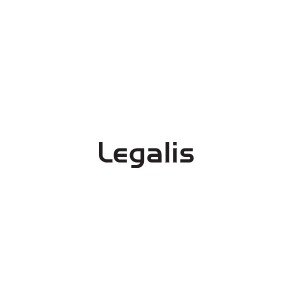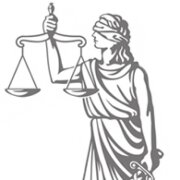Best Energy, Environment & ESG Lawyers in Norway
Share your needs with us, get contacted by law firms.
Free. Takes 2 min.
Or refine your search by selecting a city:
List of the best lawyers in Norway
About Energy, Environment & ESG Law in Norway
Energy, Environment, and Environmental, Social, and Governance (ESG) law in Norway covers the regulatory framework for the production, distribution, and consumption of energy, environmental protection, and standards for sustainable business practices. As one of the leading countries in renewable energy, Norway has robust environmental laws and an evolving landscape for ESG compliance. These areas of law ensure that natural resources are managed responsibly, environmental impacts are minimized, and companies uphold high standards concerning human rights, climate risk, and corporate governance.
Why You May Need a Lawyer
Legal issues in energy, environment, and ESG often involve complex regulations and strict compliance standards. Individuals and businesses may require legal assistance in situations such as:
- Obtaining permits for renewable energy projects like wind or hydropower.
- Ensuring compliance with pollution and emissions regulations.
- Resolving disputes over land use or resource rights.
- Adapting to new reporting requirements and ESG benchmarks for investments and operations.
- Managing liability for environmental damage or breaches of sustainability standards.
- Handling government inspections or administrative proceedings.
- Negotiating energy supply contracts and joint ventures.
- Addressing public opposition or community concerns regarding environmental impacts.
Local Laws Overview
Norway's energy sector is highly regulated, with significant focus on sustainable and environmentally friendly practices. The key pieces of legislation include the Energy Act, Pollution Control Act, Nature Diversity Act, Offshore Energy Act, and various climate and emission-focused regulations. There are also separate rules concerning environmental impact assessments for projects and strict requirements for permits and reporting.
ESG reporting is gaining importance, particularly for larger corporations and public companies, requiring disclosure of their environmental footprint, social responsibility, and governance practices. Norway also aligns its laws with relevant EU directives, especially relating to climate action, emissions trading, and sustainable finance, making compliance a moving target as regulations change.
Frequently Asked Questions
What is the main regulatory body for energy projects in Norway?
The Norwegian Water Resources and Energy Directorate (NVE) is responsible for managing the nation's energy resources, including licensing and supervision of hydropower, wind, and grid projects.
Do I need a permit to build a wind farm or hydropower plant?
Yes. Extensive permits and impact assessments are required for both wind farms and hydropower plants, with environmental concerns being a key part of the process.
How are environmental concerns addressed in new development projects?
Projects must complete an Environmental Impact Assessment (EIA) as part of the approval process. This evaluates the potential effects on ecosystems, biodiversity, and the local community.
What is ESG and why does it matter in Norway?
ESG stands for Environmental, Social, and Governance. In Norway, companies face increasing expectations to operate transparently, reduce their environmental impact, and ensure responsible management and labor practices.
Are there requirements for companies to report on sustainability?
Yes. Larger companies and public entities are mandated to report on sustainability under the Norwegian Accounting Act and relevant EU legislation.
How strict are Norway's emissions standards?
Norway has some of Europe's strictest emissions standards, including participation in the European Emissions Trading System and additional national controls to meet ambitious climate targets.
What can I do if I suspect environmental law violations?
You can report suspected violations to the Norwegian Environment Agency or local authorities for investigation and potential enforcement.
How are indigenous and community rights protected in environmental law?
Norwegian law requires consultation with the Sami Parliament and local communities for projects affecting indigenous land or cultural heritage, with strong legal protections in place.
Is Norwegian energy law affected by EU regulations?
Yes. As a member of the European Economic Area, Norway adapts its regulations to align with EU directives, especially those concerning energy markets, emissions, and sustainability.
Can individuals challenge permits or decisions for energy projects?
Yes. Affected parties or organizations have the right to appeal most permit decisions, and may bring cases before administrative bodies or courts.
Additional Resources
- Norwegian Water Resources and Energy Directorate (NVE)
- Norwegian Environment Agency
- Ministry of Climate and Environment
- Directorate for Civil Protection (DSB) for risk and safety regulation
- Sami Parliament for indigenous issues
- Norwegian Bar Association for legal practitioners specializing in energy and environment
- Norwegian Pollution Control Act guidance materials
- Local municipalities for planning and land use inquiries
Next Steps
If you need legal assistance relating to energy, environment, or ESG in Norway, start by gathering all relevant documents, such as permits, contracts, correspondence, and any notices from authorities. Consider your goals and concerns, then reach out to a qualified lawyer specializing in Norwegian energy or environmental law. It can be helpful to contact the Norwegian Bar Association for lawyer recommendations. If you are dealing with regulatory or compliance matters, contacting the relevant agency (such as NVE or the Environment Agency) can be an important first step. For urgent issues, such as investigations or environmental spills, seek immediate legal advice to ensure that your rights and obligations are protected.
Lawzana helps you find the best lawyers and law firms in Norway through a curated and pre-screened list of qualified legal professionals. Our platform offers rankings and detailed profiles of attorneys and law firms, allowing you to compare based on practice areas, including Energy, Environment & ESG, experience, and client feedback.
Each profile includes a description of the firm's areas of practice, client reviews, team members and partners, year of establishment, spoken languages, office locations, contact information, social media presence, and any published articles or resources. Most firms on our platform speak English and are experienced in both local and international legal matters.
Get a quote from top-rated law firms in Norway — quickly, securely, and without unnecessary hassle.
Disclaimer:
The information provided on this page is for general informational purposes only and does not constitute legal advice. While we strive to ensure the accuracy and relevance of the content, legal information may change over time, and interpretations of the law can vary. You should always consult with a qualified legal professional for advice specific to your situation.
We disclaim all liability for actions taken or not taken based on the content of this page. If you believe any information is incorrect or outdated, please contact us, and we will review and update it where appropriate.
Browse energy, environment & esg law firms by service in Norway
Norway Attorneys in related practice areas.
Browse energy, environment & esg law firms by city in Norway
Refine your search by selecting a city.















